20 Years in Finance: An Interview with Sam G. Huszczo, CFA, CFP, and Entrepreneur
Sam G. Huszczo, CFA, CFP | CareerSidekick | January 23rd, 2024
Sam G. Huszczo, Founder of SGH Wealth Management, brings 20+ years of investment and entrepreneurial experience. With an Economics degree from the University of Michigan and certifications as a CFA and CFP, he specializes in aligning personal investments with firm strategies. Recognized for community service, he received the 2017 CFA Institute Volunteer of the Year award. Follow Sam on LinkedIn.
Career Milestones and Recognition
When did you know you wanted to pursue a career in finance? Did you plan to be in this role when you first started your career?
“No, I actually had a job lined up with the Bureau of Labor Statistics in Washington DC out of college. I’ve always had a passion for Math and Stats and at the start of my career, Finance seemed a little too sales-oriented for me.
Although I didn’t feel lucky at the time, that Stats job fell through, and I took a local position at a Finance Firm. I knew it was for me when I got to get my hands in creative problem-solving right away. Unlike Statistics and Accounting, you never know exactly what you are walking into day-to-day in Finance and I noticed the time was just flying by. Time flies when…”
Beyond the academic and certification journey, what other avenues or experiences have significantly contributed to your professional development in the finance industry?
“Volunteerism has made a big contribution in my path. This started with a bunch of local organizations and peaked as the President of the CFA Society of Detroit. Including collecting local network connections and getting a regional Investment Advisor (me) on a national scale. This constant element definitely propelled my career much faster than it would have otherwise gone.”
You started your entrepreneurial journey in 2005, after working as a broker for 2 years at a large financial advisory firm. What were the most challenging aspects of transitioning from working as a broker to launching SGH Wealth Management at such a young age?
“Quite frankly, I was too naïve to even understand what I was up against at the startup of our firm.
I focused on little wins in the beginning, because that’s all I had. When working on a 20-year project it is very difficult to stay focused and not give up, but now I would argue that you can only fail IF you give up. My nativity in those young years was a superpower.”
Being recognized by the Detroit Business Journal’s 30 in Their Thirties and as the CFA Institute North American Volunteer of the Year is commendable. How have these accolades impacted your career and personal aspirations?
“They helped me take steps towards being a 20-year industry veteran, “overnight success”.
The national media took more notice of me after the CFA award which opened doors to allowing me to give my thoughts on a national stage. I was new to them, but reputations are built over 20 years and it’s the 20 years of consistency before that point that has allowed me to stay in this media spotlight.”
Insights about a Career in Finance
What does your typical day at work as a wealth manager look like?
“As SGH Wealth Management grows larger and larger we have departmentalized more and delegated much of the day-to-day work with clients. As the CIO of the firm, I spend much of my day in research and trading activities. Along with creative problem solving our more complex client situations. (my favorite!)”
What do you find the most rewarding about the work you do in wealth management? What are the most challenging aspects?
“Most rewarding is seeing the impact that we can have on direct people and my staff’s career. I wouldn’t be able to enjoy myself as much if those were just numbers on a page. We have deep relationships with our clients and get to share in the joy of hitting their financial goals. The most challenging, which we are really good at, is differentiating ourselves from the average financial planner. We don’t fit the mold of our industry’s stereotype and take pride in that.”
What other opportunities exist within the financial analyst profession that aspiring professionals might consider?
“One thing I love about Finance is “They need us, but we don’t need them”. If you become an expert in finance, you can apply that to any industry because every industry needs to be profitable. The largest Florist in America needs a finance department, but the largest Finance Firm in America doesn’t need flowers… even if it does brighten our day. Finance is a highly competitive industry but if you succeed, you will have ultimate job security. (even against AI)”
Are there any common misconceptions about working in finance that you’d like to dispel?
“Not all of us are finance bros/gals. There is a deeply substantive side to this industry that gets overlooked due to the dramatic storylines centering around the bad players. The industry as a whole has shifted a lot since the late 90s and there is great work to be done today that your parents would be proud of you for doing.”
What skills, experience, or knowledge have been most crucial to your success in finance?
“Communication is by far the most crucial skill I have picked up since college. I don’t care how smart you think you are; the world will only perceive you to be the level to which you are capable of communicating. Approach your personal communication, the same way a Lawyer or Comedian perfects their craft with word economy and impact.”
How do you approach building and maintaining relationships with clients, especially considering the diverse range from high-net-worth individuals to small businesses?
“When people are forced to be vulnerable with you, just to be able to work together, you must be vulnerable with them. Most people will not trust you completely unless you give them a part of yourself as well. Relationships are a two-way street, and one must let down their own personal walls if they expect to have deep relationships with their clients.”
Ethics play a crucial role in the finance industry. As a CFA Institute Ethics Ambassador, could you elaborate on the importance of ethical practices in wealth management and investment?
“Buffett said it better than I will ever be able to in saying “It takes 20 years to build a reputation and five minutes to ruin it. If you think about that, you’ll do things differently.” Play the long man’s game of high ethics and the peak of your career will heighten.”
As someone who has navigated various leadership roles, including being President of The CFA Society of Detroit, what leadership qualities do you believe are essential in the finance industry?
“Stubbornness. There are many different investment strategies that can work over periods of time but if you give up on them in their darkest days, you will likely lose money. The ability to believe in something that you know works but may not be working right now, is essential to being successful in Finance.”
Advice for Aspiring Finance Professionals
You’ve been actively engaged in educating future financial professionals through speaking engagements at various universities. What inspired you to take on this educational role, and what message do you hope to impart to young finance enthusiasts?
“I am not a “get off my lawn” type of industry veteran and have greatly enjoyed having direct relationships with the younger generations.
They will not accept a job that they do not believe in and need substance in their work. It is very rewarding to see the moral caliber of the next generation of Financial Professionals. The superpower of the future will be in relationships. There will always be a need for human connection and greed/fear will never be replaced by an algorithm. Actively research Investor Psychology and embrace the areas of finance that a robot cannot replace.”
What key transformations or advancements do you anticipate driving the future of the finance industry, and how might these changes impact financial professionals?
“ChatGPT and AI will have a similar effect to what Excel Spreadsheets did in the past. It will not replace us, but it will make us 10x more effective than we were before. This could lead to more efficient markets in the future and smaller companies that leverage ChatGPT/AI being more competitive against the big box firm’s resources. (level the playing field)”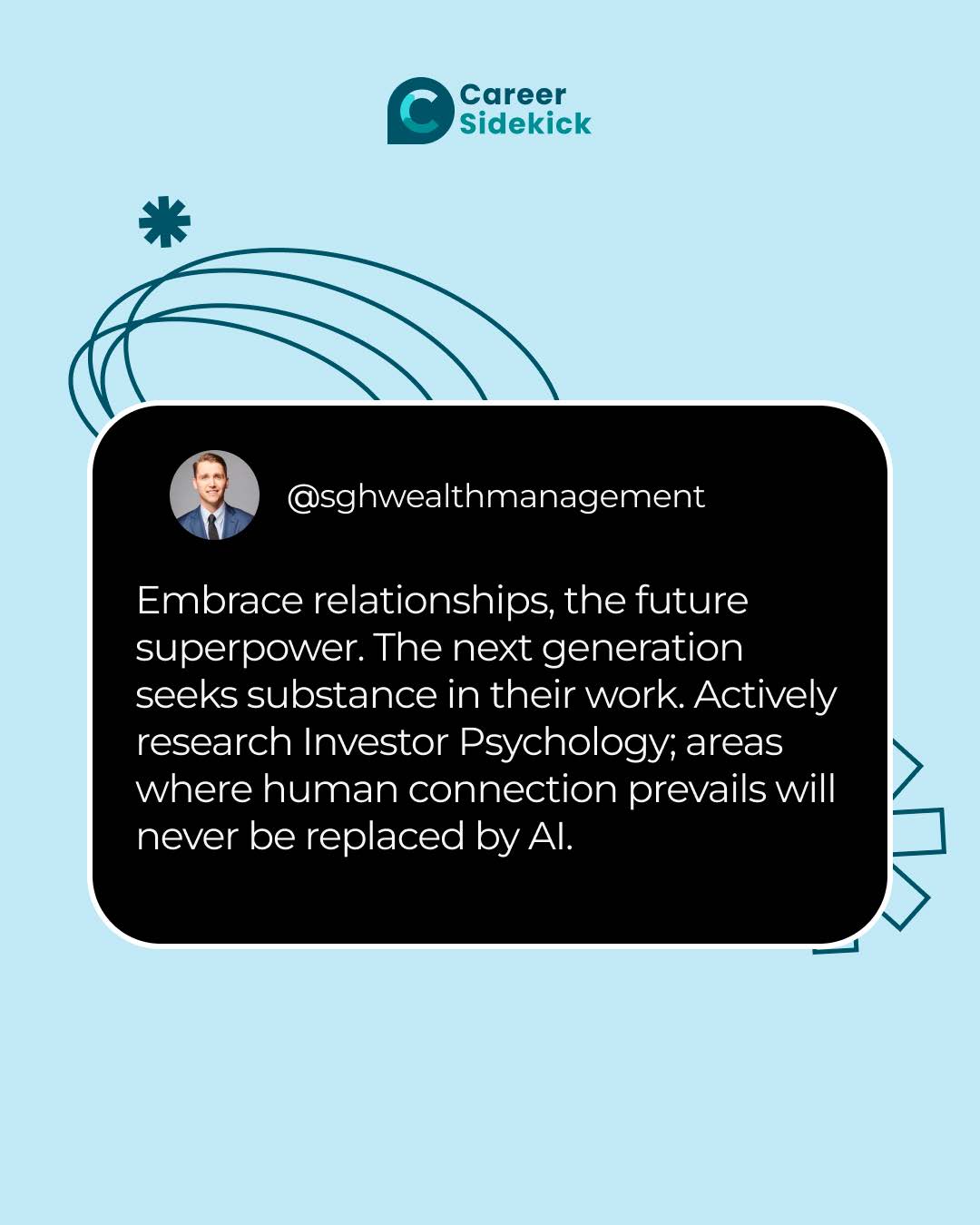
How do you continue to expand your knowledge and expertise in finance beyond formal education and certifications? Could you recommend some of your favorite books, podcasts, or resources that have contributed to your professional growth?
“The Behavioral Investor by Daniel Crosby
Trusted Advisor by David Maister
Animal Spirits Podcast with Michael Batnick and Ben Carlson
To name a few…”
Reader Q & A with Sam G. Huszczo
Is being a financial analyst stressful?
“YES. Finance is a wonderful field but highly competitive and not a punch-a-timecard type of industry. You will have to give up some work/life balance but it’s worth it for the right type of personality.”
What type of person would be a good financial analyst? How do I know if it’s for me?
“When you go on vacation, how do you plan for it? Do you like to wing it and be spontaneous? OR do you want to make every second count, planning activities for every 2-hour stretch, creating an excel spreadsheet and signing up for activities 2 months in advance? If you love creative problem-solving, love math, and have a little OCD, I would suggest giving Finance a run.”
Is it worth getting the CFA?
“Yes, if you are willing to give up 3 years of your life to achieve it. This is a difficult question to answer because I passed the tests, so I have a little selection bias. Know that the CFA has an extremely low pass rate and requires a full commitment to not waste your own time. It is not for the faint-hearted.”

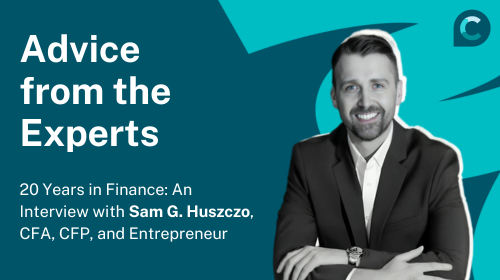
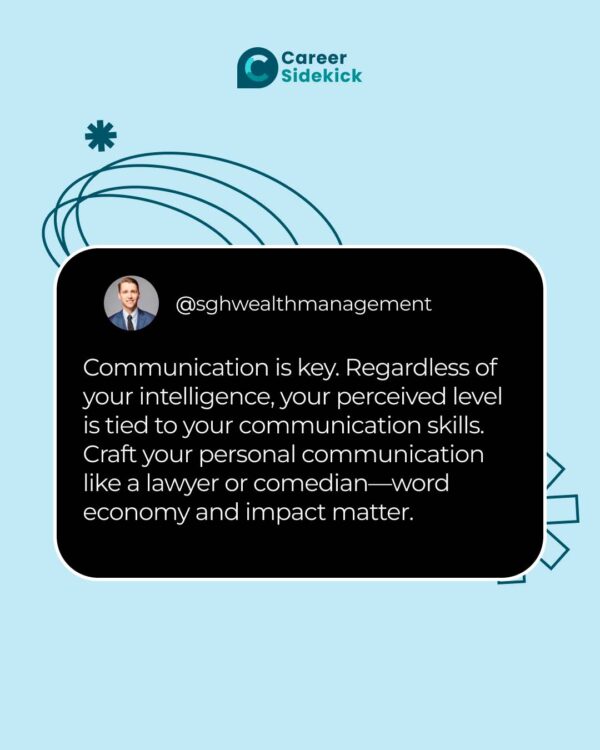
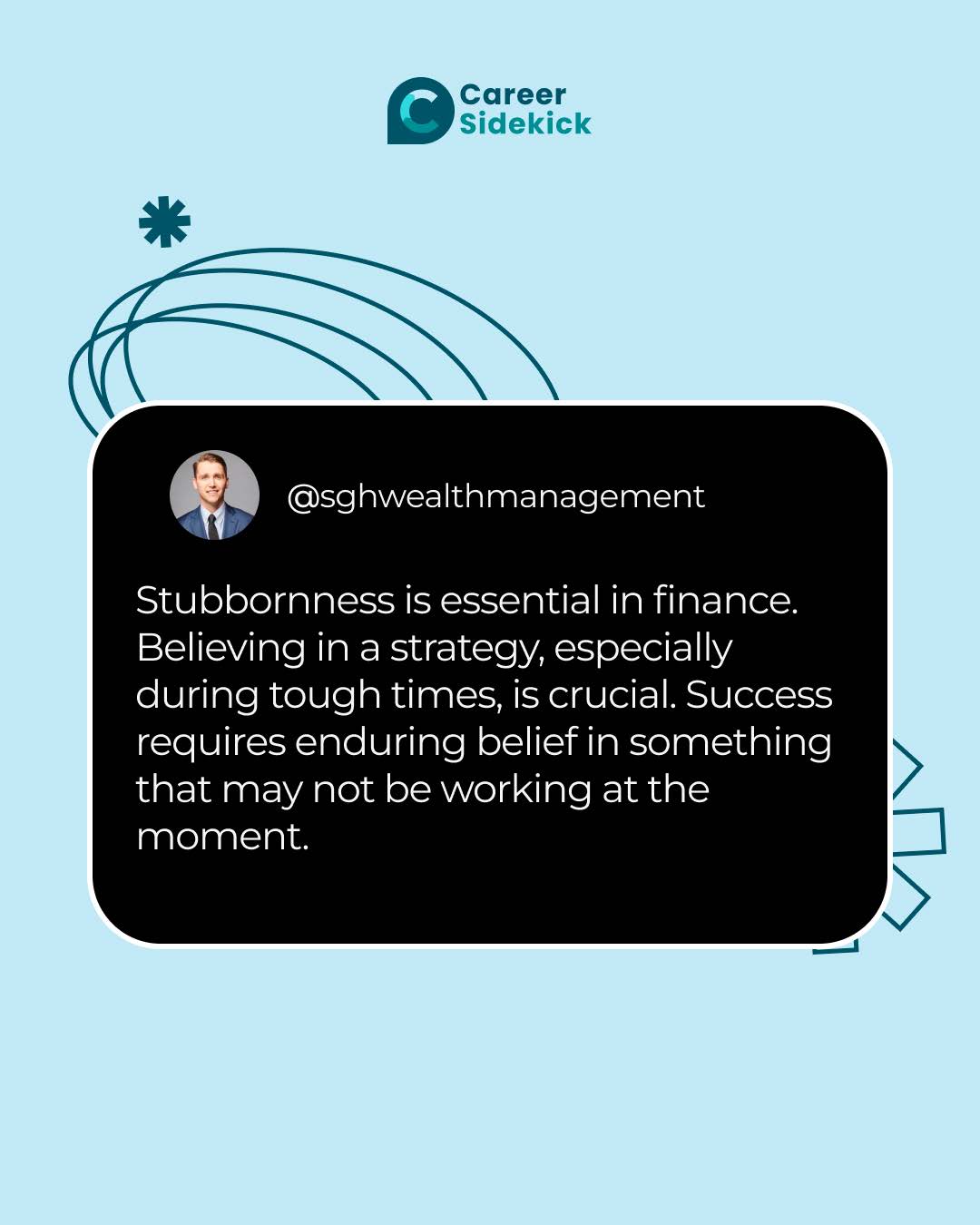

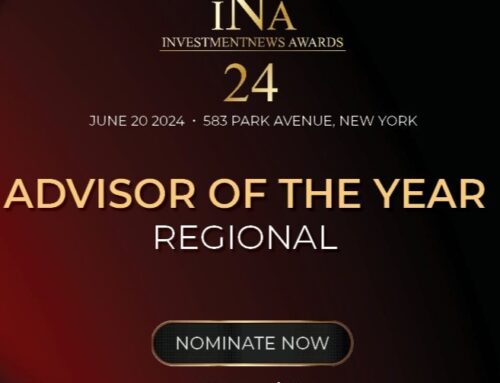
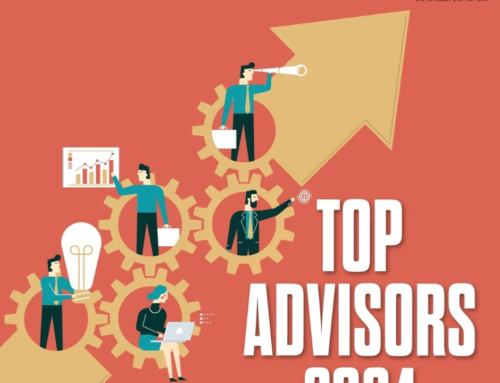


Keep In Touch